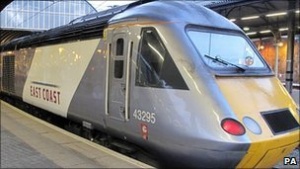Network Rail reveals East Coast main line investment plan

Network Rail today revealed details of an investment plan of £15m, aimed at improving the reliability of the infrastructure and punctuality of train services on the East Coast main line.
Focusing particularly on the southern end of the line, Network Rail is redoubling its efforts to improve performance on this critical piece of railway infrastructure following a series of engineering overruns, infrastructure failures and increase in railway fatalities which have affected passengers.
The programme of work includes increased tunnel maintenance and track renewal work, a number of measures to reduce overhead line incident risks, such as helicopter patrols, booster transformer modifications, inspections using pole mounted cameras, vegetation clearance and bird strike mitigations.
Phil Verster, route managing director for LNE & EM, Network Rail said, “Network Rail apologise wholeheartedly to all its customers using the East Coast main line for train service disruptions over the past few weeks. Some of these disruptions resulted from our intensive railway enhancement programme where we are trying to get the new additions to the railway to integrate with the older systems.
“A number of infrastructure failures and an increase in the number of railway fatalities have also affected customers. I appreciate the discomfort suffered by passengers and our apology is unreserved.
ADVERTISEMENT
“Network Rail has presented plans to our customers that set out how we intend to reduce signal failures, overhead power supply problems and engineering work overruns that have affected services. Network Rail is committing a further £15m to support these programmes and we expect to see the benefits during the next six months.”
First Capital Connect managing director, David Statham said, “We know it has been a hugely frustrating time for our passengers with many delays. That’s why we have been working closely with Network Rail to ensure the root cause of these problems is understood and addressed.”

